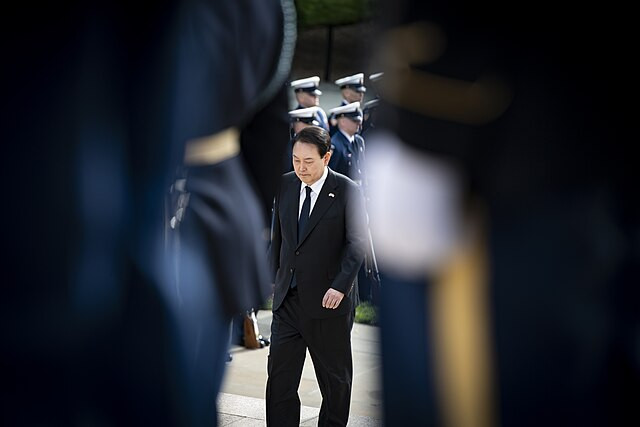South Korea's political turbulence intensified early Sunday as President Yoon Suk Yeol was formally arrested, days after being apprehended at his residence. The Seoul Western District Court approved a law enforcement request for an arrest warrant, citing concerns that Yoon might destroy evidence. This marks the first time a sitting South Korean president has been taken into custody.
Yoon, who declared martial law on December 3 to address a legislative deadlock, is facing potential rebellion charges in what has become the nation's most severe political crisis since its democratization in the 1980s. The martial law decree, quickly overturned by lawmakers, led to his impeachment on December 14.
The Corruption Investigation Office for High-Ranking Officials, leading the investigation with police and military support, now has 20 days to determine whether to formally indict Yoon. If convicted of rebellion charges, he could face life imprisonment or the death penalty under South Korean law.
The arrest prompted chaotic scenes outside the court as thousands of Yoon's supporters gathered to demand his release. Demonstrators clashed with police, breaking windows, throwing objects, and even damaging vehicles used by investigators. Dozens of protesters were detained, and some officers were treated for injuries on-site.
Yoon and his lawyers attended a closed-door court hearing on Saturday, where they argued for his release. Yoon's legal team maintained that his declaration of martial law was a legitimate exercise of presidential authority and that accusations of rebellion were unfounded. Investigators countered by highlighting Yoon's refusal to comply with subpoenas and his alleged obstruction of earlier detention attempts.
Yoon's defense team did not share specific details of his comments during the hearing. Following the court's decision, Yoon was transported back to the detention center where he had been held since his initial apprehension.
The martial law decree, enacted to break through a legislative gridlock, sent military troops to the National Assembly and election offices. However, lawmakers who managed to reach the assembly voted to lift the measure, and the opposition-controlled legislature subsequently impeached Yoon.
The fallout has already led to the arrests of Yoon's defense minister, police chief, and several top military officials involved in the enforcement of the decree. Their trials could further complicate the political landscape as South Korea reckons with the broader implications of this crisis.
Supporters of Yoon continue to rally, asserting that the investigation is politically motivated. Critics argue that his defiance of the judiciary and investigators undermines South Korea's democratic principles.






